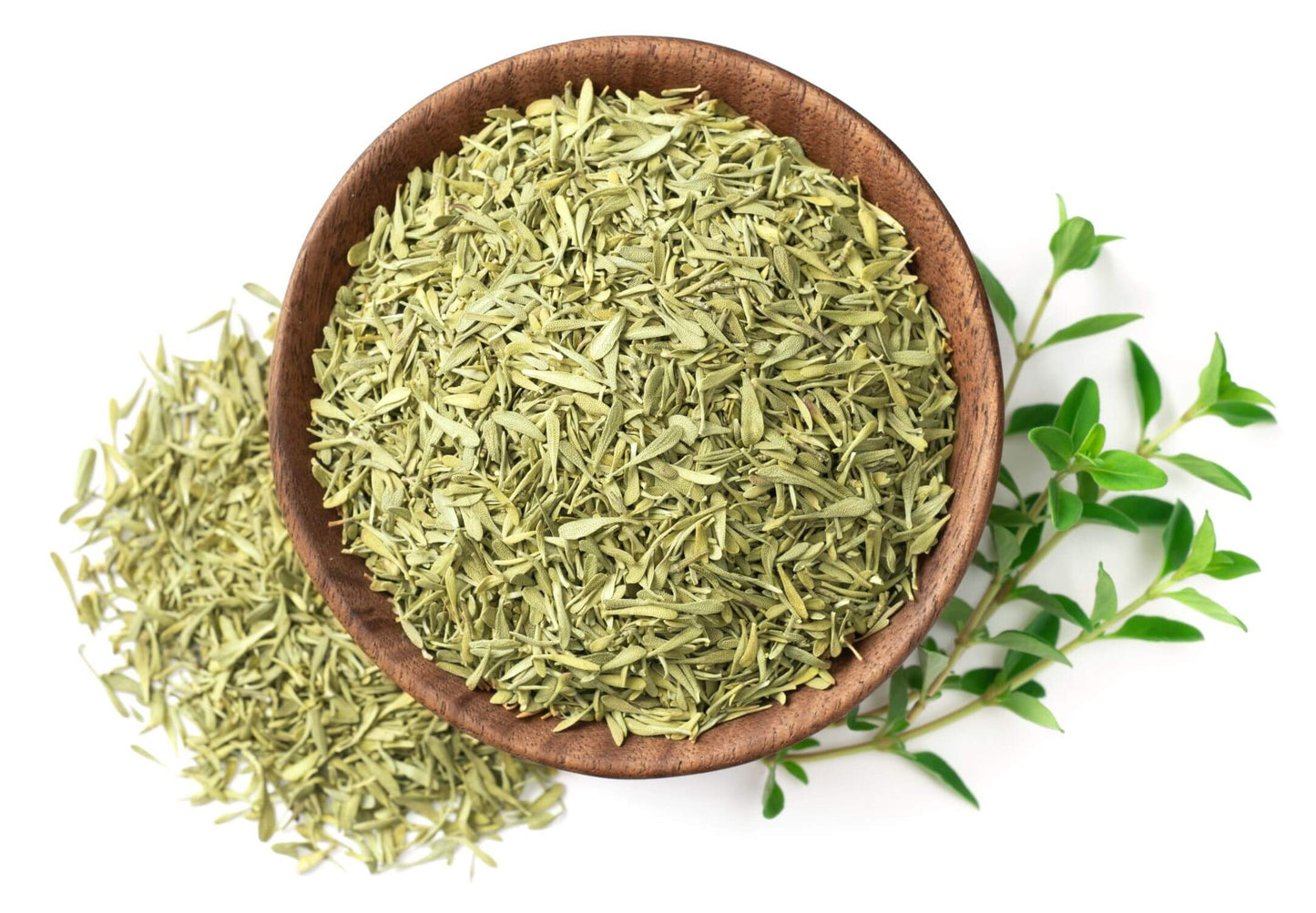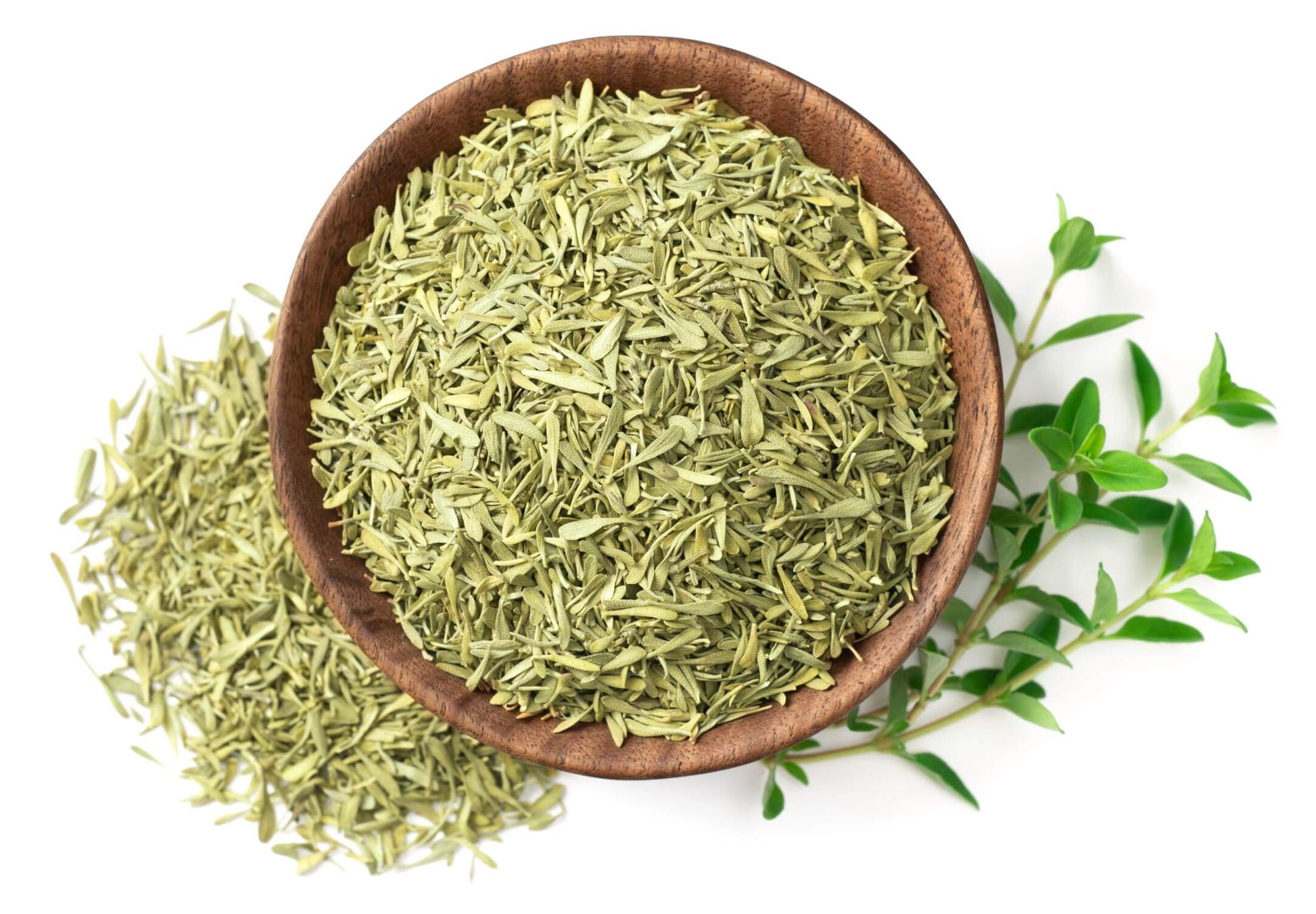Thyme
Thyme
Couldn't load pickup availability
Thyme, scientifically known as Thymus vulgaris, is a fragrant and versatile herb that has been a cherished ingredient in the culinary and medicinal worlds for centuries. With its aromatic leaves and a robust, earthy flavor, it is a staple in many kitchens around the world. Here are some key aspects:
Culinary Versatility: It is renowned for its versatility and its ability to complement a wide range of dishes. Its flavor is described as earthy, slightly peppery, and somewhat minty. Thyme is often used in savory recipes, adding depth to meats, vegetables, soups, and stews. It is a key component in classic spice blends like herbes de Provence and bouquet garni, and it pairs particularly well with poultry, lamb, and fish.
Aromatic Qualities: The fragrance of thyme is characterized by its warm, herbal aroma, which is both soothing and invigorating. Thyme’s aroma has made it a popular choice for essential oils, potpourri, and perfumes.
Medicinal Uses: Thyme has a history of use in traditional medicine for its potential health benefits. It is believed to have antimicrobial and antioxidant properties and has been used to alleviate respiratory issues, soothe sore throats, and aid digestion. Thyme tea, made by steeping thyme leaves in hot water, is often consumed for its potential therapeutic properties.
Gardening Appeal: It is a popular herb to grow in home gardens. It is relatively low-maintenance, drought-tolerant, and can be grown in various climates. Its trailing varieties make it an excellent choice for ground cover and as an ornamental garden plant.
Cultural Significance: Thyme has cultural significance in various regions. In ancient Greece, it was associated with courage, and warriors would carry sprigs of thyme into battle. In medieval Europe, it was used to purify rooms and protect against disease. Additionally, it is a symbol of remembrance in some cultures.
Culinary Staples: Thyme is a fundamental ingredient in many regional cuisines, especially in Mediterranean and French cooking. It can be used fresh or dried, with the dried version preserving much of its flavor and aroma.
Pairing with Other Flavors: Thyme pairs well with a variety of other herbs and spices, including rosemary, oregano, and basil. Its use alongside garlic and onion is common, and it enhances the flavors of a wide range of dishes.
In summary, thyme is a versatile and aromatic herb that adds depth and fragrance to countless dishes. Its robust flavor, coupled with its potential health benefits and cultural significance, has made it a beloved and essential ingredient in kitchens and gardens worldwide. Whether used as a seasoning, a garnish, or a therapeutic remedy, thyme continues to be a cherished and multifaceted herb.
Share


